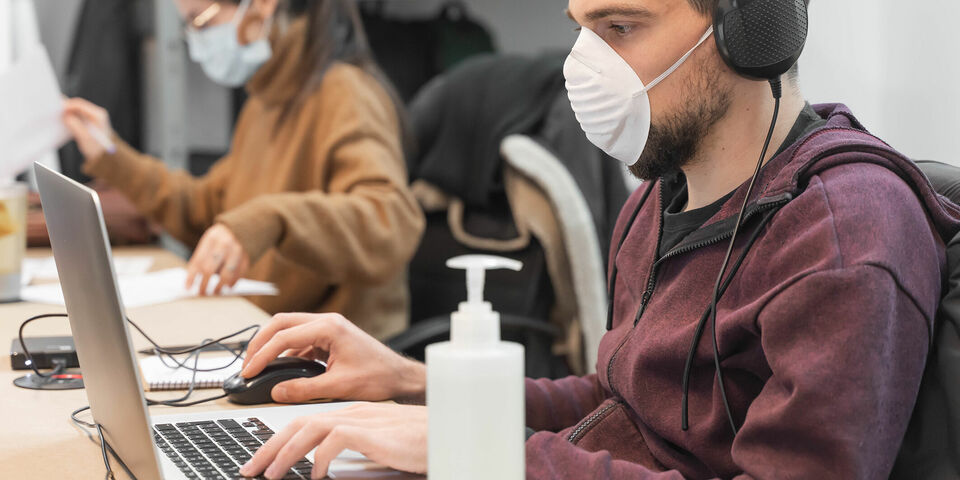The discussion surrounding facemasks continues. At the insistence of the House of Representatives, the government has now issued a nationwide advisory to wear one in all publicly accessible indoor spaces.
Prime Minister Rutte announced (in Dutch) the new measure during a major debate on the coronavirus. “It applies almost everywhere you cannot see the sky,” he said. “In shops, museums, town halls, stations, airports, car parks, petrol stations, restaurants, cafes, theatres and concert halls, except when you are seated.”
Bottlenecks
A remarkably long list, from which higher education was absent. D66 parliamentary party leader Rob Jetten also noticed this. And that is despite the fact that, according to him, a lot more lessons could be held on campus, if facemasks were mandatory.
The lecture halls are big enough, said Jetten. It is perfectly possible to keep a distance of 1.5 metres there. In his view, the problem would be mainly in “bottlenecks” such as corridors, stairs and elevators, where very few people are allowed to congregate now. As a result, institutions can currently use only a small area of their buildings to provide education, he said.
Tall buildings
When asked by Rutte if that statement was correct, Jetten replied that he had checked with “a lot of educational institutions”. He cited the tall buildings of Vrije Universiteit Amsterdam as an example. “Because you are only allowed in the elevator on your own or with two people, there is a limit on the number of contact hours that one can provide,” said Jetten. “A facemask might help in that situation.”
Risk
But, for the Prime Minister, that was taking things a step too far. “Then you are ignoring all the advice that says, where it is possible to maintain that 1.5 metres, it is much better to do that, than not doing that,” he responded. “You would effectively be saying, in higher education you don't have to observe the social distancing measures anymore.”
According to Rutte, the fact that students and staff would wear a mask does not allow them to get into an elevator with three or four people at a time. “That is a real risk.”
Urgent recommendation
Facemasks will no doubt remain a topic for discussion for the foreseeable future. Until then, institutions are approaching it in different ways. Rotterdam University of Applied Sciences, for example, announced yesterday that it would make facemasks mandatory as soon as possible. For the time being, Amsterdam University of Applied Sciences, The Hague University of Applied Sciences and inHolland University of Applied Sciences are leaving it as an urgent recommendation.
Most universities seem to be waiting for further guidelines from the government and the security regions. But as of today, the University of Groningen is also “urgently” advising students and staff to wear a facemask in its buildings, reports UKrant.


Discussion